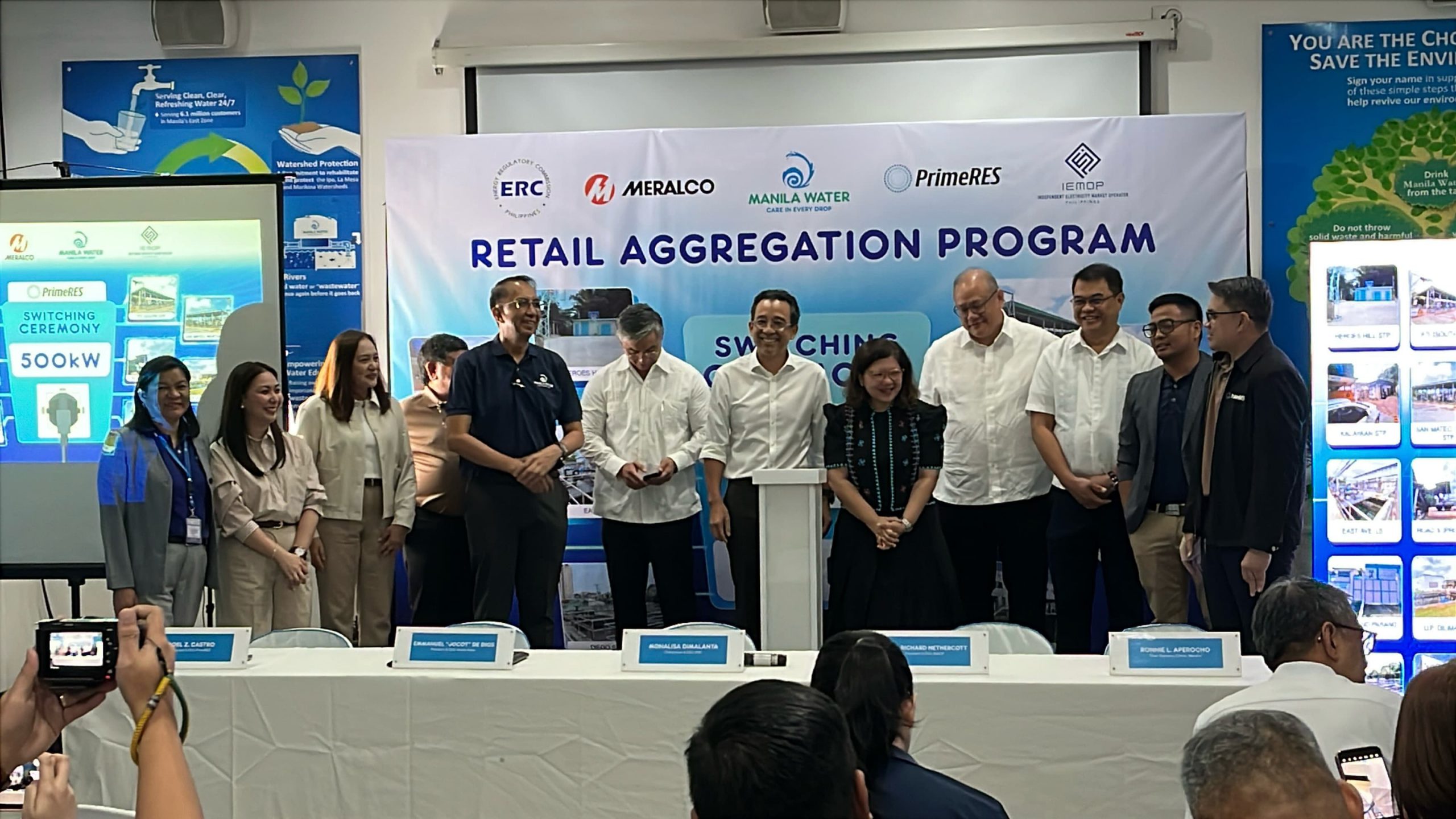Manila Water joins Retail Aggregation Program, enrolls 10 wastewater facilities
- February 27, 2025
- 0

Manila Water has transitioned from a captive market to a contestable market under the Retail Aggregation Program (RAP), enrolling ten of its wastewater facilities in the initiative.
In the switch-on event earlier today, Energy Regulatory Commission (ERC) Chairperson Monalisa Dimalanta explained that RAP allows multiple end-users in a contiguous area to join together and enjoy the benefits of Retail Competition and Open Access (RCOA).
The water company has consolidated ten wastewater facilities under the RAP, namely: Heroes Hill Sewage Treatment Plant (STP), FTI (South) STP, Kalayaan STP, San Mateo (North) STP, East Avenue Lift Station, Road 5 (Project 6), Mahabang Parang Lift Station, UP Diliman STP, Diego Silang STP, and Olandes (Marikina) STP. These facilities have a combined average demand of 500 kilowatts (kW).
Meanwhile, Retail aggregator PrimeRES secured a contract to supply Manila Water’s facilities, primarily sewage treatment plants within the Manila Electric Company (MERALCO) franchise area, with cost-effective electricity.
PrimeRES commended the ERC for implementing RAP, which allows customers to choose their power provider and negotiate lower electricity tariffs.
Manila Water President and CEO Jocot de Dios highlighted the ERC’s role in granting customers the power to choose their electricity supplier.
De Dios added that “we celebrate that by a ceremonial signing of this initiative, Retail Aggregation Program, which will obviously benefit the company but more than that will benefit the consumers…so I’d like to hail that, our regulator and our partners to generate the fruits of that law and other initiatives to make it better for consumers because, at the end of the day, utilities serve a public purpose”.
Dimalanta emphasized that expanding the retail electricity market fulfills the goals of the Electric Power Industry Reform Act (EPIRA) while delivering practical benefits.
“That the growth of the retail space is not only the realization of the promise of EPIRA. It actually quite importantly has practical benefits for each one of us as individuals and as members of the sectors we represent. For the customers as mentioned earlier, it allows greater freedom to negotiate more acceptable and suitable terms for their power requirements,” said Dimalanta.
The ERC chair added that the shift not only creates new opportunities for retail suppliers by expanding the market and generating jobs but also streamlines their obligations in sourcing power for their entire franchise area.
At the same time, regulators can now concentrate their efforts on overseeing the regulated sector, optimizing resources, and improving industry oversight—an outcome Dimalanta called “a win upon win.”
The transition marks a significant step in Manila Water’s efforts to optimize operational costs while promoting competition in the energy sector.
What do you think of Manila Water’s shift to the contestable market? Share your thoughts at Power Philippines on how competition can improve utility services.